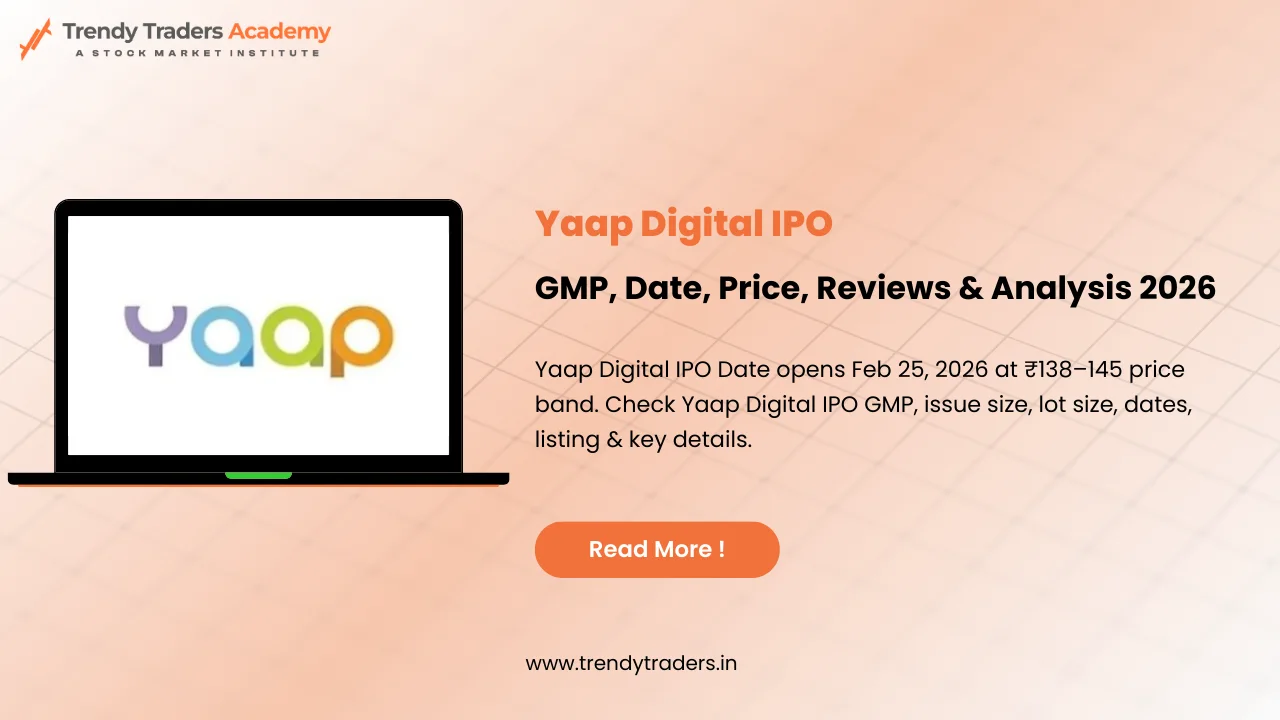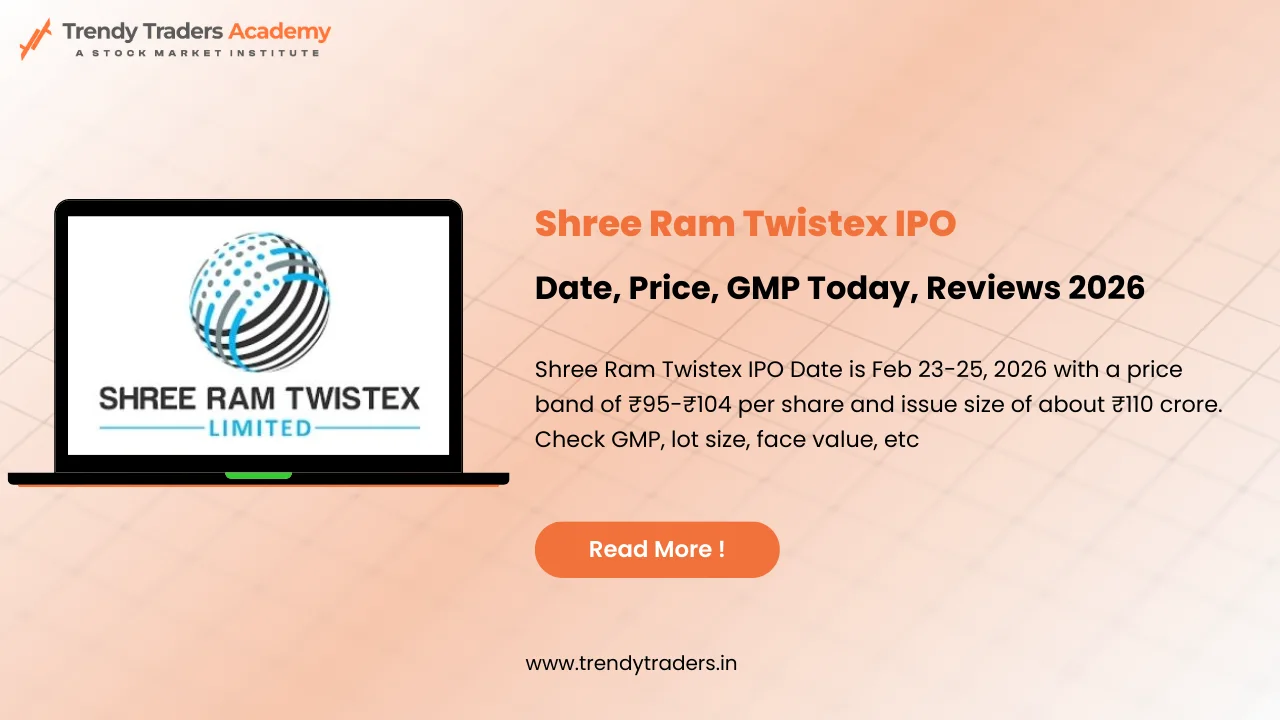
What is Algo trading in Stock market
One form of trading is changing the dynamics of how stocks are sold and bought and that is none other than Algorithmic trading or simply Algo Trading. But what is Algo Trading really? Is this method really profitable? How can one start with the process? And is algo trading legal for Indians? This blog will dive right into the world of automated trading.
What is Algo Trading ?
At its core, what is algo trading? Algo Trading involves the application of computer programs to take trades automatically based on preexisting conditions such as timing, volume levels or price moves. Imagine one wants to purchase shares when the 50-day moving average crosses the 200-day moving average. In algorithmic trading, this can be programmed into a system. Once the condition is satisfied, the algorithm executes the order instantly – without lifting a single finger. The speed, precision and discipline takes away all the emotional triggers that haunt human traders
Is Algo Trading Profitable?
Is algo trading profitable? In short: It is possible—but it’s not a magic wand.
Let’s look at how it works:
- Speed: The algorithm functions instantly, often faster than any human can.
- Consistency: Rules are followed to the tee; there’s no fear or greed involved in this.
- Backtesting: One can test their strategy on past data to see the performance of the strategy before putting real money at risk.
That said, profitability depends on crafting strong strategies and strict rules, testing them properly, and controlling risk effectively.
How to Do Algo Trading
So, how to do algo trading?
- Choose a platform/broker that supports automated trading(like Zerodha, IIFL, or Tradetron)
- Define your rule set—decide entry criteria, exit conditions, stop-loss levels, and position sizing.
- Backtest the rules over past data to refine timing, efficiency, and risk.
- Paper‑trade (also known as forward testing) in real-time without risking capital.
- Go live with a small capital. Monitor performance, update your strategy as markets shift.
That step-by-step approach turns an idea into actionable Algo Trading—reliable, repeatable, and measurable.
Is Algo Trading Legal in India?
Is algo trading legal in India? The answer is emphatically yes—but with important rules
- SEBI first legalized algo trading in 2008 for institutions. Since then, it’s become heavily regulated.
- Recent updates require brokers and exchanges to pre-approve algorithms, add unique IDs to orders, and audit systems to prevent market misuse
- Retail traders are now allowed to trade using algorithms through approved APIs—so long as they follow the compliance requirements
- You must register any custom algorithm with your broker/exchange and ensure it passes risk checks and order-to-trade ratio limits.
In short, if you stick to SEBI-approved platforms and complaint rules are met, algo trading is legal in India and encouraged for retail participation.
Common Types of Algo Strategies
Here are a few popular categories of Algo Trading strategies:
- Trend-Following – Eg: moving average crossover systems that ride winning tracks.
- Mean-Reversion – Systems that buy assets when they deviate from historical averages
- Arbitrage – Exploiting small price mismatches across different exchanges or instruments
- Index Rebalancing – Automatically aligning with changes in broad market indices.
- High-Frequency Trading (HFT) – Ultra-fast trades relying on minute price differentials
Whatever the approach, the idea is the same: use consistent rules and computers’ speed to execute effectively.
Is Algo Trading Profitable?
To revisit: Is algo trading profitable? Data shows yes—around 97% of foreign investor and proprietary F&O profits come from algorithms. But success depends on:
- Doing your operation homework
- Testing strategies under varying conditions
- Managing risk carefully
- Maintaining oversight to prevent bugs or sloppy code
With discipline, algo trading is certainly a path to consistent returns.
Risks and Practical Challenges
Algorithmic systems aren’t risk-free:
Technical Issues: Internet or server failures can halt execution.
Model Risk: Poorly defined rules could skew performance.
Overfitting: A strategy may work in past data but collapse in live conditions.
Regulatory Risk: Non-approved algorithms or excessive order rates can lead to penalties
That’s why SEBI’s rules don’t just allow algo trading—they mandate order tagging, audits, and risk safeguards.
How to Do Algo Trading Successfully
Here’s a quick system to launch your algo journey:
- Pick a Simple Idea: Like a moving-average crossover or RSI breakout.
- Backtest with a data range covering bull, bear, and sideways markets.
- Forward Test in paper mode to validate real-time feasibility.
- Deploy with a small capital and keep an eye on logs, performance, and slippage.
- Regularly update your models to adapt to changing market behavior.
With methodical execution, your algorithm becomes a disciplined tool—not a “fire-and-forget” robot.
Algo Trading in India: Retail Perspective
Retail algo adoption has grown thanks to fintech platforms:
- Zerodha, Upstox, IIFL, Tradetron, and QuantMan now offer algo-friendly APIs and UI-based tools
- These platforms allow non-programmers to configure and deploy simple strategies themselves.
- SEBI’s 2025 retail framework helps minimize market abuse while encouraging responsible usage .
In short, how to do algo trading has never been more accessible for Indian investors.
Emotional and Psychological Edge
Technology in no way removes the importance of control and discipline:
- Algorithms remove emotion from entries/exits—but that doesn’t eliminate the need to monitor them.
- Strategy drift, execution delays, or changing market regimes require oversight.
- The best traders see algos as tools—not replacements for judgment or adaptability.
Practicing checklist-based reviews and monitoring sleep well—your program is trading!
Quanttrix: Simplifying Algorithmic Trading for Everyone
Quanttrix – The Best Artificial Intelligence Trading Bot makes algo trading accessible by offering fully backtested strategies—tested over five years—for users to deploy without writing any code. The platform eliminates the need for technical barriers and allows traders to execute proven systems in just a few steps. Quanttrix has build in tools to minimize risk, manage stop loss and control position sizing to help users execute traders more effectively, confidently and with disciplined approach. Quanttrix concentrates on performance, risk management and ease of use, making it effective option for anyone willing to explore the world of algorithmic trading without having to worry about the complexity that is involved.
Conclusion
Algo trading isn’t just too good to be true – its a effective way to trade with discipline, consistency and accuracy. It tackles the question what is algo trading and offers us answers. It provides us solutions to questions such as is algo trading profitable, how to do algo trading and is algo trading legal in India.
With SEBI’s clear regulations, tech tools democratizing access, and robust process steps in place, algorithmic trading has become a viable path for everyday investors. It’s not just about speed—it’s about consistency.
FAQ'S
What is algo trading?
Algo trading is when a coded set of rules automatically places trades—based on price, time, volume, or technical conditions
Is algo trading profitable?
Yes—it can be, especially when tested and executed diligently. Firms and retail traders often see consistent profits thanks to algo efficiency .
How to start algo trading?
Pick a SEBI-registered broker or platform with API support. Define, backtest, paper-trade, go live, and monitor
Is algo trading legal in India?
Absolutely. It’s regulated—but allowed. You need to use approved algorithms, tag orders correctly, and work with SEBI-compliant brokers










